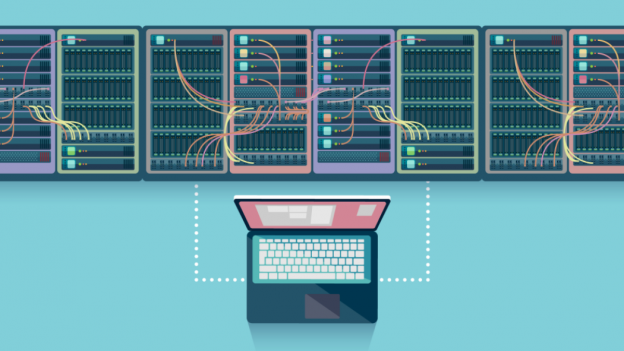So, the most pressing question of the decade that we, as data center service providers, come across is “should I upgrade to a more advanced servers or increase my RAM?”
This is one of the finest (and most cliché) questions that our support team gets asked. As data center providers, we know how confusing it could be while deciding whether you should continue with your current server or switch to a more expensive one.
The content creation team at Go4hosting decided to chit-chat with one of the most celebrated members of our Sales team, Sam. Sam has been associated with us for last 7 years and has more than 10 years of experience in hosting industry (overall).
So, here’s the podcast of our conversation with Sam.
Author – thanks, Sam, for squeezing in some time out of your busy schedule. How are you?
Sam – I am fine, thank you very much.
Author – So, how’s the business lately, after the coronavirus pandemic? Is business recovering?
Sam – Oh, business has been great. We weren’t impacted much. You know when the coronavirus outbreak happened, a number of organizations moved online, so we had the usual business, to be honest.
Author – Sam, our comment section is teeming with questions, as you know. We have caused you the pain because our readers want to know if they should upgrade their servers or scale RAM on their current workstation.
Sam – Oh, yeah, yes, I hear that question a lot too. A lot of time, a simple increase in RAM, storage would do the job for you but, yeah, there are certain signs that the server gives out when it is time for an upgrade.
Author – You talk about signs, we would get to that in a minute. Would you tell our viewers the difference between actually “upgrading” server and “upgrading” resources?
Sam – Upgrading, per se, means changing to an advanced and more powerful system component. So, when you feel like your servers is not performing the way it should be, try upgrading RAM but there is a limit to that. You cannot go on infinitely increasing your resource because beyond a point it won’t make a difference.
Author – We understood that expanding – if you can use that term – resource also means “upgrading”. What’s the root cause of confusion among our clients?
Sam – When your server isn’t functioning normally, you have two options. You can either increase resources (RAM, storage, bandwidth, etc.) or you can move to a better and more advanced servers. Which is to say, if you are on shared hosting, you change to VPS, and from VPS, you switch to a dedicated server.
Author – Looks like both the options need investment. Which one do we recommend to our clients the most?
Sam – It depends on the underlying problem. If there is any scope of increasing RAM, we do that because it is more viable, financially. When there is no option left, you’d need to move to another server.
Author – But when do you know which option to recommend to the customer? I mean, you are experienced obviously, but can you give some tips to our readers who manage their own servers.
Sam – Before a server dies out, it gives out certain necessary signs. For example, applications won’t cache fast enough, downloading gets painfully slow. Files take like forever to open and the hosted website has too high a load-time.
Author – And when do you know your server is being overworked?
Sam – The processor would do anything above 75% usage. That is how you know your server is overburdened and you should consider an upgrade.
Apart from that, the web server will continuously pop up troubles for you. It is okay for the system to run into errors but when it is time for an upgrade, the server would do that a lot more often.
Author – We received a dozen fan mails last week and one of them complained that the server is being excessively noisy. The fan wrote that his website is working slower than ever. What are your thoughts on this?
Sam – This could be a hardware issue. All the noise from a system comes from its fans. The hotter the system gets, the more RPM the fans need to achieve, thus the noisier it becomes. Check if any component has undergone failure. If things seem fine, I reckon your server is doing more than it can handle. Upgrade it.
Author – Nicely explained. “Does low disk space have anything to do with the server upgrade? Can’t I simply increase my disk to accommodate more files?” writes another fan. What are your thoughts on this, Sam?
Sam – Makes sense. But you need to increase RAM too, the existing memory won’t be able to accommodate the added memory. If you are on a VPS, provider would tell you that you have touched the ceiling and resources cannot be scaled anymore. If you have hit that point, there is no choice but to upgrade. Ask your data center service provider to migrate you to a dedicated server.
Author – We won’t take more of your valuable time. Just one last question, which server would you recommend our clients to switch to?
Sam – When upgrading, follow a chronological order. Start with shared hosting and when you have outgrown the same, move to the VPS. When you outgrow that too, migrate to dedicated server hosts.
Author – Thanks, Sam. That answers almost all of our fans’ questions, and ours too. Thank you again for your valuable time.






 Live Chat
Live Chat